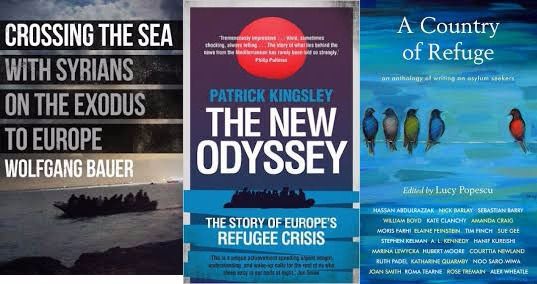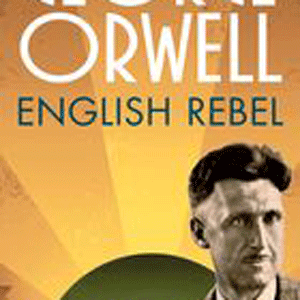
The New Odyssey by Patrick Kingsley (Faber)
Crossing the Sea with Syrians on the Exodus to Europe by Wolfgang Bauer (& Other Stories)
A Country of Refuge, edited by Lucy Popescu (Unbound)
Reviewed by Niki Seth-Smith in the autumn 2016 New Humanist:
In the current public conversation, this figure [of the immigrant] has not only migrated from one country to another, he has migrated from reality to the collective imagination where he has been transformed into a horrible fiction.” So says Hanif Kureishi in his contribution to the anthology of refugee writing A Country of Refuge.
Each of these three books, in their different ways, attempts to make the return journey back to reality: to a place where the humanity of the immigrant can not only be understood but deeply felt.
Battling the Gods by Tim Whitmarsh (Faber)
Reviewed by Andrew Copson in the summer 2016 New Humanist:
Long before there was Christianity, the beliefs and values that constitute humanism had formed the perspective of millions of people around the world in Europe, Asia and China, to name just those regions from which we have ancient written records.
“Who is it paints the peacocks, who is it makes the cuckoos sing?” asked the materialists of the Charvaka school in India 2,300 years ago, answering, “There exists here no cause except nature.” They were rigorous naturalists, seeing no need for belief in gods to explain reality, and their anti-clericalism is as fierce as any espoused by the partisans of the French Revolution.
The Insane and the Melancholy by Ece Temelkuran (Zed)
Ece was interviewed by JP O'Malley in the winter 2016 New Humanist:
Will the artistic and cultural life of Turkey change?
I suspect it will be more conservative. But then again, there have always been struggles for freedom in Turkey. And the country has never exactly been a heaven for journalists, freedom fighters, writers or intellectuals. But they always existed, and they still do.
The Essex Serpent by Sarah Perry (Serpent's Tail)
Reviewed by Sarah Ditum in the autumn 2016 New Humanist:
[...] these moments of beautiful acuity are held in the narrative like geological samples in a Victorian collector’s case. They can be removed, examined and treasured, and remain still part of the whole. And that whole is a potboiler of the best kind, marked by genuine strangeness and a rare intelligence.
The Left’s Jewish Problem by Dave Rich (Biteback)
Reviewed by Keith Kahn-Harris in the winter 2016 New Humanist:
Zionism is a political ideology and, as such, should be open to critique. Further, when those on the left reject Zionism, they often envisage in its stead – or, at least, claim to envisage – some kind of secular nation with equal rights for all, on the post-apartheid South African model. In and of itself this is not anti-Semitic. While, as Zionists often point out, it may not be fair that Jews should be denied a nation state of their own, it is also true that not all nations or ethno-religious groups have a state of their own.
Awkwardly, it is also true that many Jews see Zionism as a central part of their Jewish identity (whether religious or secular) and the state of Israel as the ultimate guarantor of their existential well-being. To them the “destruction of the state of Israel” means genocide, and the rhetoric of at least some of the opposition to Israel in the Arab and Muslim worlds doesn’t leave a great deal of room for Jews living as equal citizens in a “liberated” Palestine.
Burning Country by Robin Yassin-Kassab and Leila Shami (Pluto)
Robin was interviewed by Samira Shackle in the autumn 2016 New Humanist:
Why did you write this book?
We felt the situation in Syria was being very badly misrepresented. The revolutionaries weren’t being heard from. People were more aware of the geopolitics of the roles of states, though they often misinterpreted them, and heard about jihadists. But they weren’t aware of the people at the heart of the story – actual democrats – who started it all.
Angry White People by Hsiao-Hung Pai (Zed)
Hsiao-Hung was interviewed by Samira Shackle in the summer 2016 New Humanist:
The book is called Angry White People. What are those people so angry about?
[...] Angry White People is about this group of people who come from dying manufacturing working class communities, families who used to vote Labour. These people are mostly in casual flexible employment, they don’t have an identity of any kind of industrial link. The only thing they have is this invented national identity. They are a marginalised section of the manufacturing working class and they feel very alienated in society. That’s where the anger comes from.
The Ministry of Nostalgia by Owen Hatherley (Verso)
Reviewed by Houman Barekat in the spring 2016 New Humanist:
The Ministry of Nostalgia argues that 21st-century Britain is engaged in a kind of collective denial, retreating into an imagined past where society is “solid, stoic, public-spirited, as opposed to the the depolititicised, hysterical and privatised reality of contemporary Britain”. Hatherley’s specialist area is architecture, and a good deal of this book centres on social housing as a cipher for the fortunes of postwar social democracy. “In Britain today,” he writes, “we are living through exactly the kind of housing crisis for which council housing was invented in the first place, at exactly the same time as we’re privatising its remnants.”
Redeemable by Erwin James (Bloomsbury)
Reviewed by Dawn Foster in the summer 2016 New Humanist:
Without the strong personal investment of the prison psychiatrist and the opportunity to study behind bars, James could easily have ended up reverting to his former behaviour, sliding into drink and violence. That he did not is down to the warmth and time invested in him in prison – a focus on redemption, rather than punishment, which serves to rehabilitate him to the point that he finally accepts the enormity of his crimes and the emotional toll of his actions on his victims, his children and his family.
Merchants in the Temple by Gianluigi Nuzzi (Henry Holt)
Reviewed by Keith Porteous Wood in the spring 2016 New Humanist:
The Vatican is administered entirely by princes of the Church and ruled over by the Pontiff – Europe’s last absolute monarchy, with the possible exception of Liechtenstein. Only the most naïve can have thought it to be the epitome of charity and good governance.
Gianluigi Nuzzi’s book Merchants in the Temple, however, makes a convincing case that the Vatican may well be among the most corrupt states in the world. The corruption is so ingrained and all-encompassing that the state may well be ungovernable.

